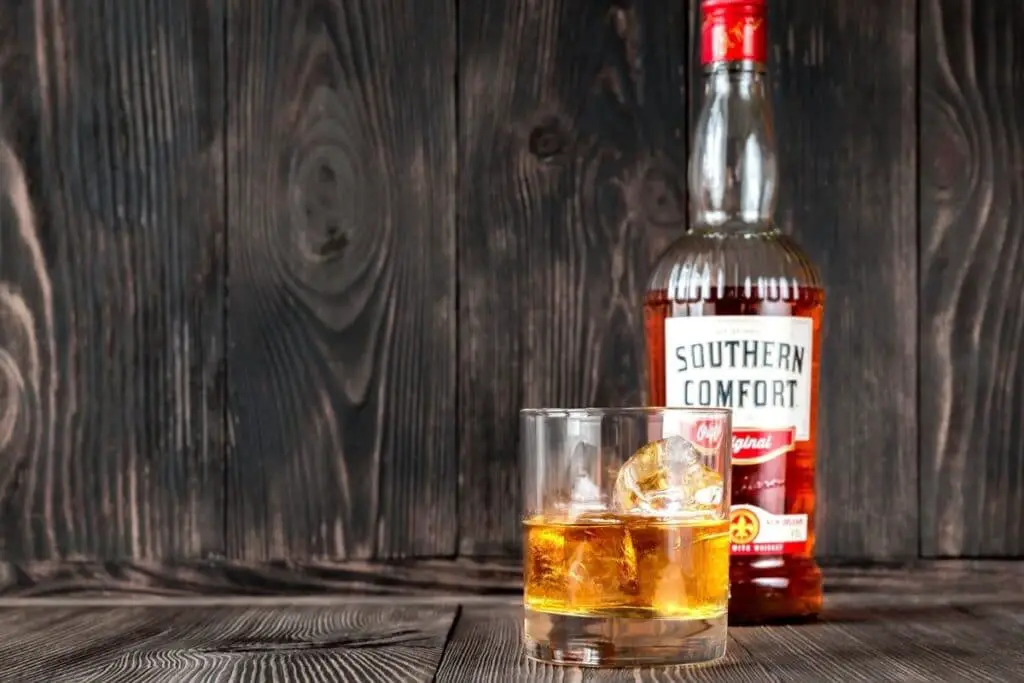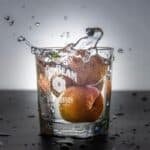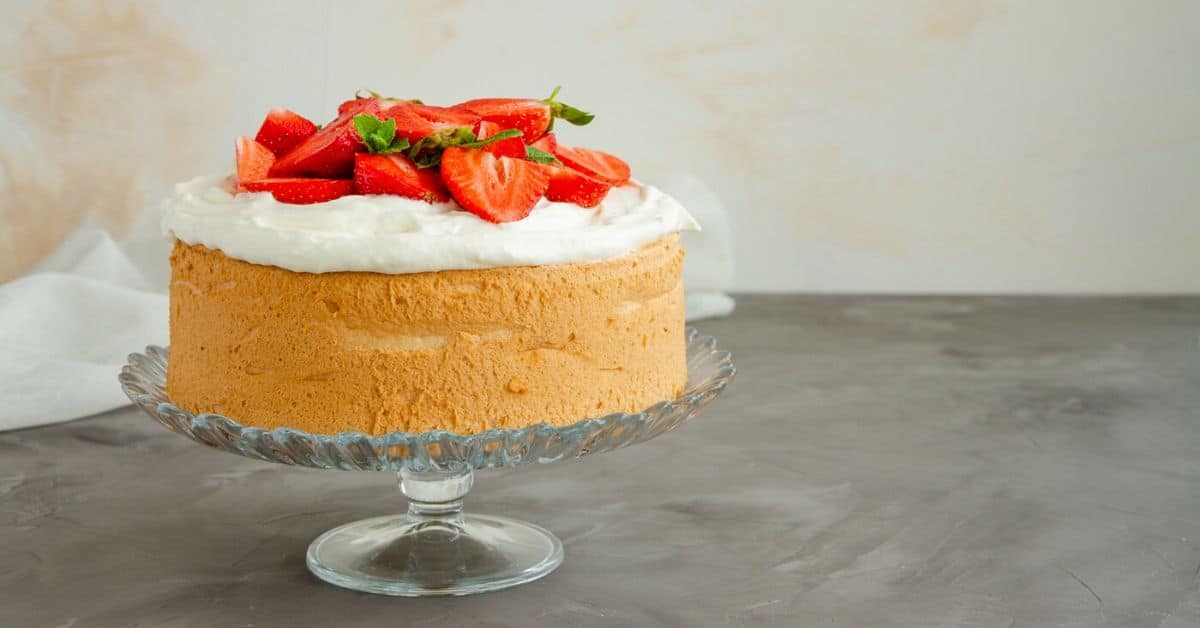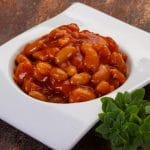Key points:
- Vanilla whiskey is a type of whiskey that possesses a natural or infused vanilla flavor, contributing to its overall taste profile.
- Some popular vanilla whiskeys include Henry McKenna Single Barrel, Maker’s Mark 46, Angel’s Envy, Crown Royal Canadian Vanilla Whisky, and Jim Beam Vanilla.
- We also explain key whiskey terminology such as single malt vs. blended, cask finishes, and aging, while also distinguishing between bourbon and whiskey below.
Even whiskeys that are not specifically flavored with vanilla beans have an inherent vanilla undertone. Some more than others. Whether you are looking for something smooth loaded with vanilla richness or just a slight hint amidst the charred oak accents, we’ve rounded up a few of the best vanilla whiskeys.
To help you choose the best option suited to your palette, we’ll first uncover what gives different types of whiskey their inherent flavor profiles.
Whiskey Terminology for Beginners
When reading a whiskey label description it will tell you whether it is a blend or single malt and the age of the whiskey. These are important factors that affect the flavor.
Blended vs Single Malt
Single malt refers to whisky that has been made at one distillery only. It is made from 100 percent malted barley. Single malts are pretty complex and take an acquired palate to truly appreciate.
On the other hand, blends combine single grain whiskeys from multiple distilleries. Master blenders are appointed to perfectly balance the match for approachable and smooth finished products.
A Cask Finish
If the whiskey has a cask finish it means that it has been matured in a cask that was previously used for sherry, rum, or port, amongst other types of alcohol. When the whiskey has a cask finish you can expect a naturally sweet product with a smooth drinking quality.
Age
The whisky label will state the age of the whisky. For blended whiskeys the age stated will be that of the youngest addition in the blend. Whiskey needs to be aged in oak barrels for a minimum of three years to earn its name.
Bourbon vs Whiskey
Bourbon and whiskey are often referred to interchangeably, however, there is a difference between the two. In the same way that champagne is a type of wine, bourbon is a kind of whiskey. Essentially, all bourbon is a type of whiskey. All whiskeys are however not bourbon.
The thing that distinguishes bourbon from whiskey is the manufacturing and aging process. Whiskeys are all manufactured from varying types of fermented grains which are matured in barrels. The type of grain and barrels play a large part in the whiskey classification.
Bourbon specifically needs to be made from at least 51 percent corn among a blend of other grains or mash. The sweet flavor of corn is noticeable in bourbon’s aromatic makeup.
Another differentiation between bourbon and other whiskeys is that it has to be aged in new charred oak barrels. Bourbon is not bourbon if it has been matured in barrels already used to age other alcohols. Bourbon also does not include any additives or colorings.
The maturation process needs to take place for at least two years. The aging process in the charred oak barrels allows the alcohol to extract vanillin from the wood.
This intriguing chemical process results in the vanilla notes commonly associated with bourbon. Some bourbon and whisky brands have a deeper and more prominent vanilla burst depending on the aging process.
Best Vanilla Whiskey
The vanilla flavor in whiskey can be due to the way it was naturally made and matured or due to the infusing of actual vanilla beans in the alcohol. Some natural products may have such a strong vanilla accent that you mistake them for having undergone the addition of vanilla flavoring which won’t actually be the case. To help you choose the best vanilla whiskey for your drinking style, we’ve rounded up the best 5 blends.
Henry McKenna Single Barrel
50 Percent alcohol by volume
On the pricier side, this single barrel bourbon is matured for 10 years making it much sought after and slightly harder to find. When you do, it is worth every penny. If you like collecting specialist whisky of higher-proof expressions and want to dry something extraordinary, this is the one to get.
The vanilla accents are prominent from the first sip, developing into rich, buttery, and malt notes. You’ll sense a kiss of cherry as you continue to savor the creamy vanilla goodness.
Maker’s Mark 46
47 Percent alcohol by volume
You’ve probably heard of Maker’s Mark, but this version is certainly worth looking out for. The well-known mellow caramel accents are amped up with more vanilla notes due to the addition of seared virgin French oak cask slats which result in increased extraction of vanillin.
Maker’s Mark 46 proudly boasts the original treacle and charred oak flavors, with the addition of molasses, buttery caramel, and creamy vanilla. At a mid-range price for an excellent quality product, this one is highly recommended.
Angel’s Envy
43.3 Percent alcohol by volume
Here you have a whiskey finished in port wine barrels making it the ideal sophisticated dessert drink. You will love the complex flavor if you are into sweet accents. This whiskey offers caramel, toasted vanilla, port wine, and charred oak notes, reminiscent of winter’s day sticky toffee pudding comforts.
Crown Royal Canadian Vanilla Whisky
35 Percent alcohol by volume
Now, for those who want the real, unmistakable crowning of vanilla in their drink, Crown Royal Canadian Vanilla Whisky has gone to the lengths of infusing the drink with Madagascar vanilla beans. While there is a subtle fruitiness the vanilla is pretty prominent making this the ideal whiskey for Irish coffee, vanilla-cola with a twist, cocktails, and in desserts.
Jim Beam Vanilla
35 Percent alcohol by volume
Another infusion of vanilla beans is offered by Jim Beam’s Madagascar bourbon vanilla bean permeated drink. This whiskey still allows the subtle taste of oak to come through while balancing rich caramel and vanilla flavors. Another great cola addition, or enjoy this one on the rocks.
FAQs
What are the most popular whiskey cocktails?
Some of the most well known whiskey cocktails include an Old Fashioned, Mint Julep, Rust Nail, Godfather, and Lynchburg Lemonade.
What are the best mixers to go with whiskey?
Some of the best mixers to go with whiskey include club soda, ginger ale, cola, lemon-lime soda, and vermouth for classic cocktails like the Whiskey Sour or Old Fashioned. These mixers can enhance the flavors of the whiskey without overpowering them.
What is the difference between scotch and whiskey?
The main difference between scotch and whiskey lies in their origin and production. Scotch is a type of whiskey that is specifically made in Scotland, while whiskey (or whisky) is a broad term that encompasses various types of distilled spirits made from grains and produced in different countries, including Scotland.
Conclusion
Whether you like your whiskey straight up, in dessert, or fancified in a cocktail, the vanilla accents bring a little luxury to every sip. Next time you savor your oak-aged drink, appreciate the process it has gone through to bring you the smooth and comforting flavor we love to call liquid sunshine.
Up next:
*image by alex9500/depositphotos








